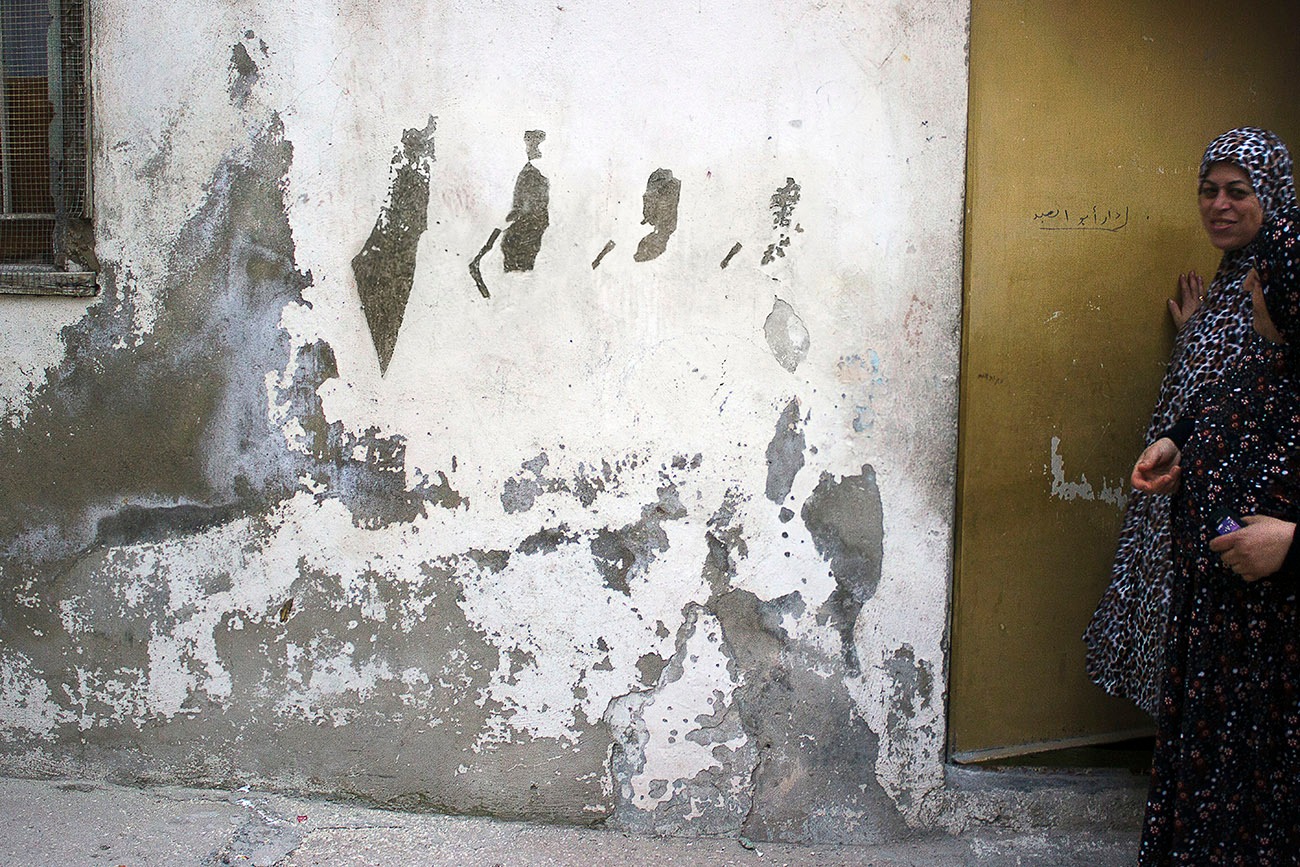PLO

“There was a big meeting organized by Arabs living in the United States, soon after the emergence of the Palestinian Liberation Organization (PLO) [in 1967]. … Some Arab students invited me to give the keynote address at this conference… I argued that armed struggle was supremely unsuited to the Palestinian condition, that it was a mistake to put such an emphasis on it. … A successful armed struggle proceeds to out-administer the adversary and not to out-fight him. … This out-administration occurs when you identify the primary contradiction of your adversary and expose that contradiction … to the world at large, and more important, to the people of the adversary country itself.
I argued that Israel‘s fundamental contradiction was that it was founded as a symbol of the suffering of humanity … at the expense of another people who were innocent of guilt. It’s this contradiction that you have to bring out. And you don’t bring it out by armed struggle. In fact, you suppress this contradiction by armed struggle. The Israeli Zionist organizations continue to portray the Jews as victims of Arab violence. …
If I hadn’t gone through the Algerian experience, I wouldn’t have reached this conclusion. After seeing what I saw in Algeria, I couldn’t romanticize armed struggle. … The Algerians lost the war militarily, but won it politically. They were successful in isolating France morally. … When I had finished, there was considerable discomfort on the part of the young Arab students. They were shocked, the expert on guerilla warfare, the man from Algeria, the anti-Vietnam War leader is arguing the exact reverse of what we believe in. …
Obviously, you couldn’t morally isolate the regimes of Hitler or Stalin. A strategy of moral isolation assumes that the adversary has based its own legitimacy on moral grounds. … Between 1967 and now, Israel society has in some ways worsened. Likud [and its coalition partners] … are much less susceptible to moral arguments. [In 1967] centrist Zionism’s primary contradiction was its principles of legitimacy were moral and its practices were immoral. And it is that which had to be fully used. Opportunities were lost in the 1970s, once the PLO had become a quasi-state in Lebanon. …
But if you don’t have a leadership, then what do you do? I have spoken to Arafat about this line in great detail probably five or six times. He always took notes, always promised to do things, always did nothing …
It’s hierarchical, but not Leninist. Once we use the word ‘Leninist’ other images come in, such as discipline, austerity, and genuine sacrifice. The PLO took on the slogan of armed struggle, understanding it merely as the use of arms. They took on the slogan of political organization or parallel hierarchy only to distribute patronage. It’s a traditional political Arab organization … Political bosses stay in control by distributing patronage, using gun-toting as a method for legitimation. Their gun-toting stopped once it stopped serving their purpose. …
In 1975 or 1976, several leaders of the PLO … were in New York for a UN session … the PLO delegation to the U.N. called me and Chomsky and asked if we would come to talk to these leaders. … We talked about the importance of … reaching various wings of American civil society. … There was one man there … who understood and agreed with us. The rest justified their positions. Some gave lectures that were essentially ignorant. … I was beyond depression by that time. I had seen enough. They defeated themselves more than the Israelis did. …
In 1980, I had made a second trip to the south of Lebanon, where PLO forces were concentrated … the PLO posture in Lebanon was much too tempting for an organised army of adversaries. I had written to Arafat saying ‘The way you are organized you will not be able to resist for more than five days.’ …
After the PLO had been driven out of Lebanon, … I argued with him that his single biggest need was to develop a clear-cut position … Announce that you have no problem recognizing the state of Israel. but ask which Israel you are being asked to recognize. Is it the Israel of 1948? … Is it the Israel of Israeli imagination? Because Israel is … the only member of the United Nations, that has refused to announce its boundaries …
The violence they were practizing … fundamentally lacked the content of revolutionary violence. … It had no mobilizing content to it. … It was more an expression of a feeling that an expression of a program. … The PLO was not a revolutionary organisation. … [Finally] the PLO went to surrender. The most tragic point about the PLO is that Israel has not accepted its surrender.”
“Israel is a small country, 5.5 million people. The Arabs are many. … Someday, the Arabs will have to organize themselves. Once they have done that, you will see a different history beginning again, and it won’t be a pretty one. In fact, I’m scared of it.”
aus: Eqbal Ahmad: Confronting Empire. Interviews with David Barsamian. Cambridge, Mass.: South End 2000, S.29-35, 98, 57.
Abb.: Pejac in Al-Hussein, a Palestinian refugee camp in Amman, Jordan, StreetArtNews, 21.4.16, im Internet.
03/16